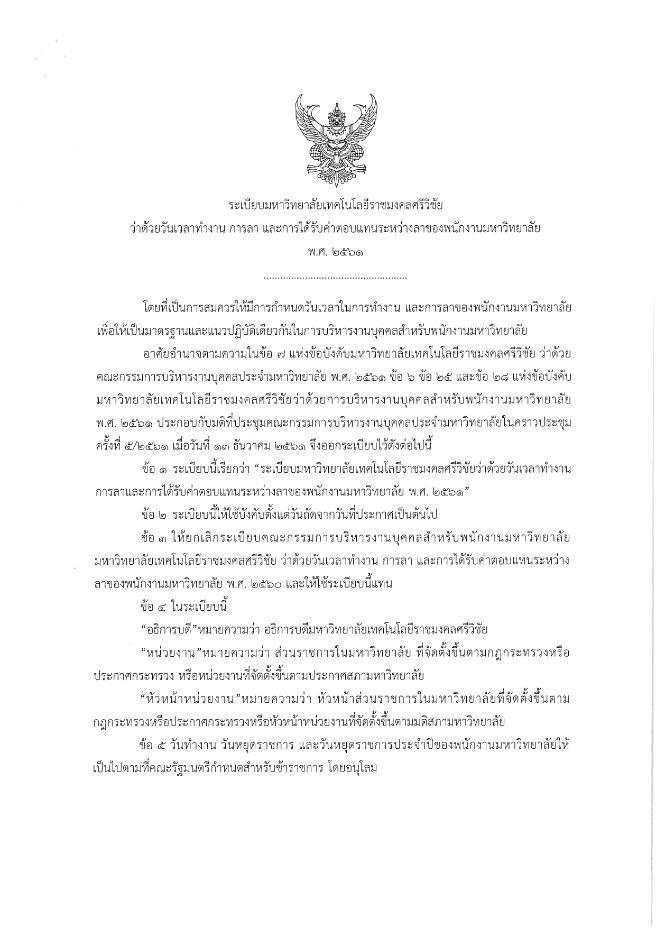Reporters: Asst.Prof. Saowanee Chaipech, Dr. kittichon Utaynapun, Asst.Prof. Sudanai Krualee, Mr. Ugrit Chammari
Evidence Date: during 2023 Jan-Dec
Related SDGs:

Related Indicators: 12.2.4
Details:
The announcement from Rajamangala University of Technology Srivijaya on sustainable consumption and production since A.D.2022.
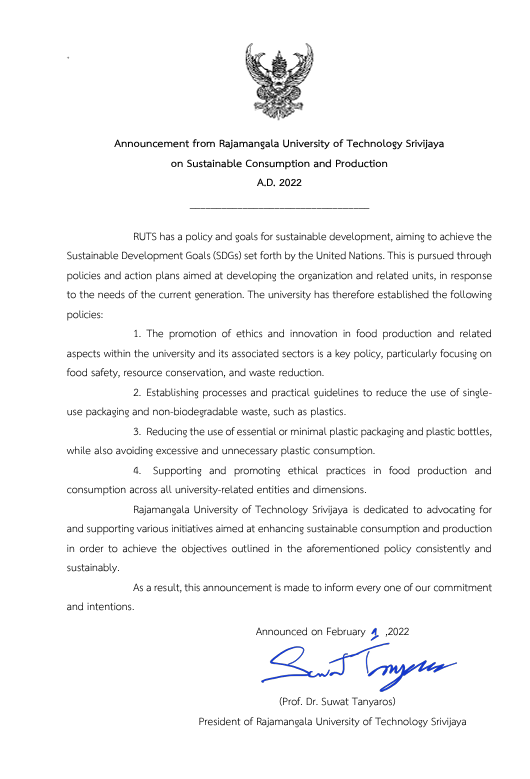 |
Evidence I Select Waste to Help Khanom’s Sea
A team of lecturers from Rajamangala University of Technology Srivijaya, Nakhon Si Thammarat Campus, located in Khanom District, Nakhon Si Thammarat Province, has launched a project called “Select Waste to Help Khanom’s Sea” during the Covid-19 pandemic. Situated along the Gulf of Thailand’s coast, the area is home to popular tourist destinations, making waste overflow a major issue. The project aims to support academic services, research, and teaching, with the objective of raising environmental awareness and promoting the reuse of plastic waste. A key focus is on cultivating environmental consciousness and social responsibility among students. The project applies essential knowledge from the professors’ fields, such as reducing daily waste, collecting and sorting plastic waste, waste management, recycling plastic bottles, producing biodiesel, creating eco-friendly materials, and manufacturing interlocking bricks mixed with stone dust and recycled polycarbonate sheets. This knowledge is shared with students, local communities, and the general public to foster environmental awareness and encourage the beneficial reuse of plastic waste.
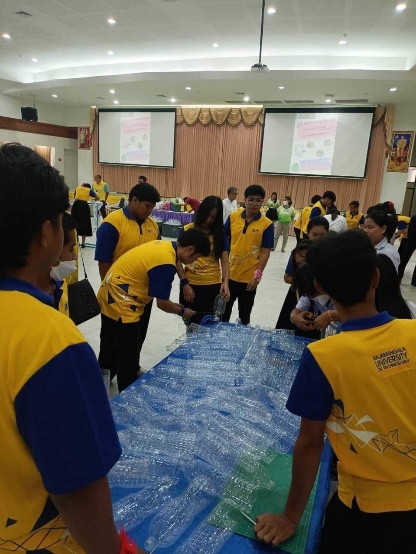 |
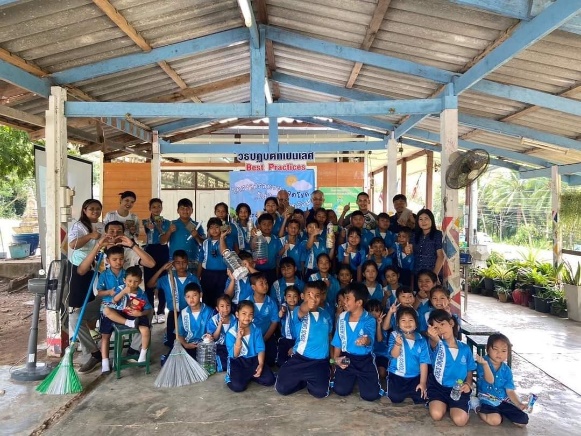 |
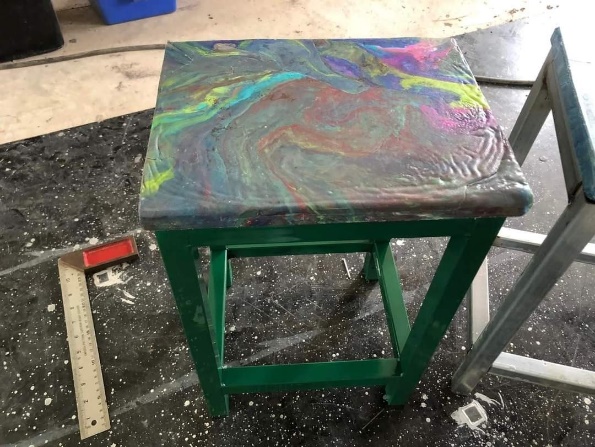 |
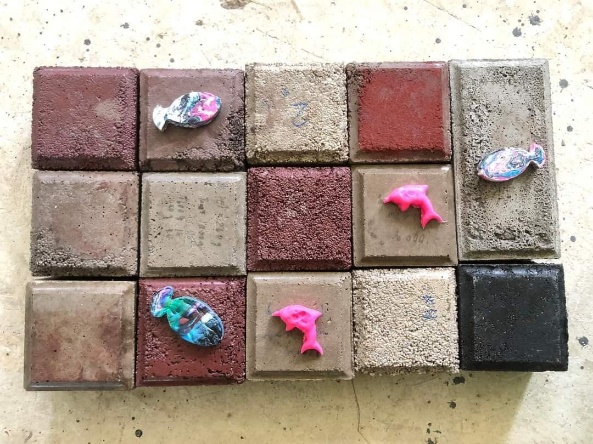 |
https://www.facebook.com/share/p/A5TkhtZJZSos2Dtp
https://www.facebook.com/share/p/HvKtRc6S3a95r64K
https://www.facebook.com/share/p/i8EnndcUGwYHg5ME
https://www.facebook.com/share/p/MT9L3rFo3nmCATkx
https://www.facebook.com/share/p/rqviJjh3ikufEf3s
Evidence II Waste Reduction and Recycle plastic for container Bacteria Production
Rajamangala University of Technology Srivijaya has established policies and operational guidelines for waste reduction and sorting within the university. These initiatives aim to raise awareness among staff and students, empowering them to take proactive measures in addressing emerging challenges. Therefore, waste reduction and sorting measures within the university are collecting plastic bottle size 1.5 L and 6 L to become Photosynthetic Bacteria (PSB) culture container. The plastic bottle on those size was collected to the Aquabiot Laboratory under Departement of Fishery, Faculty of Agriculture, Saiyai Campus. Recycling plastic bottles as containers for culturing PSB represents an innovative and sustainable practice at the university. This initiative engages staff and students in waste reduction efforts and offers a cost-effective solution for laboratory applications. The clarity of the plastic bottles enables easy monitoring of culture growth, and their lightweight, durable design enhances practicality for handling and storage. These containers recommend to use for 6 months to 1 year, promoting environmental sustainability within the university community while supporting research in microbial ecology and biotechnology.
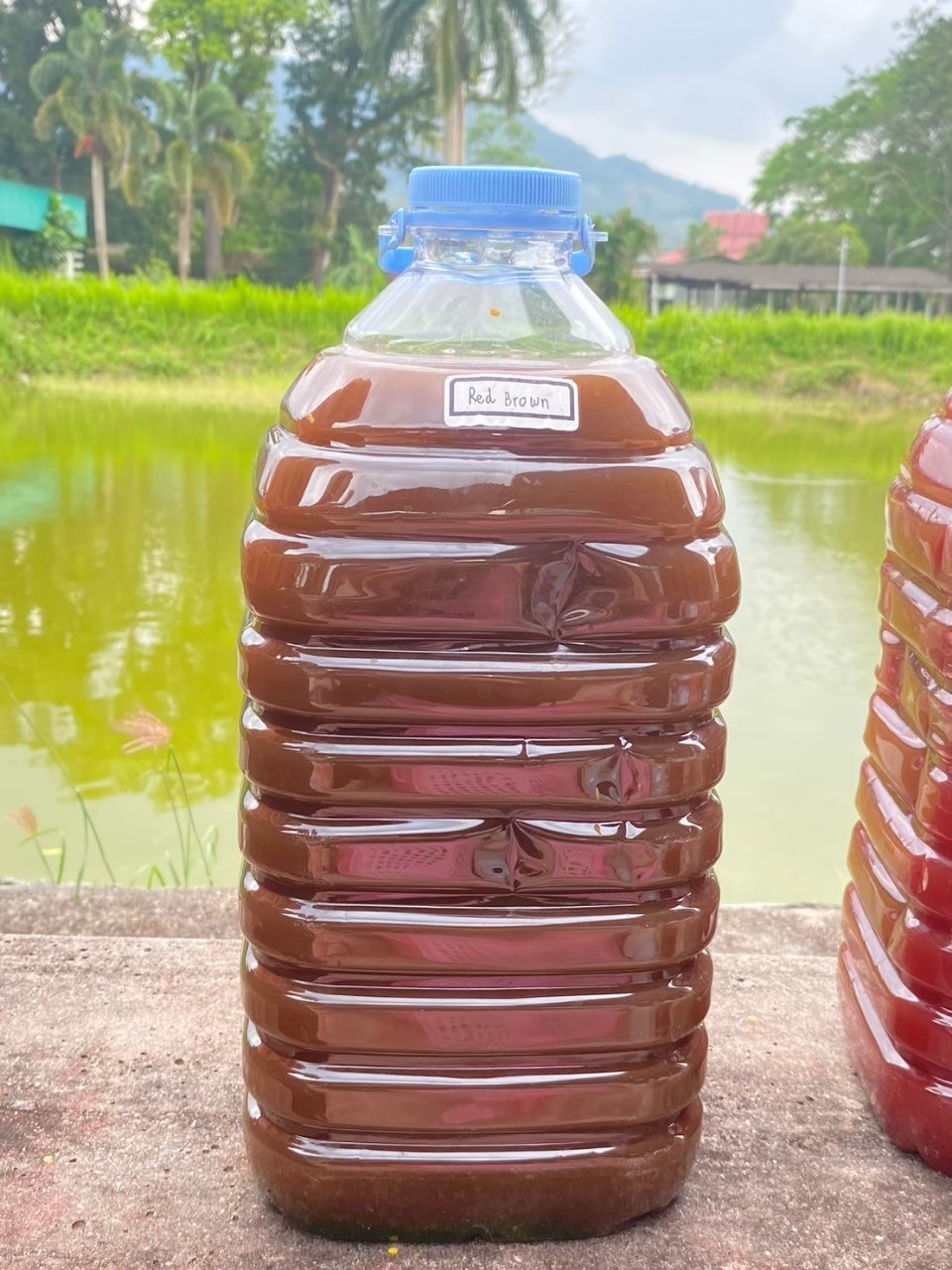 |
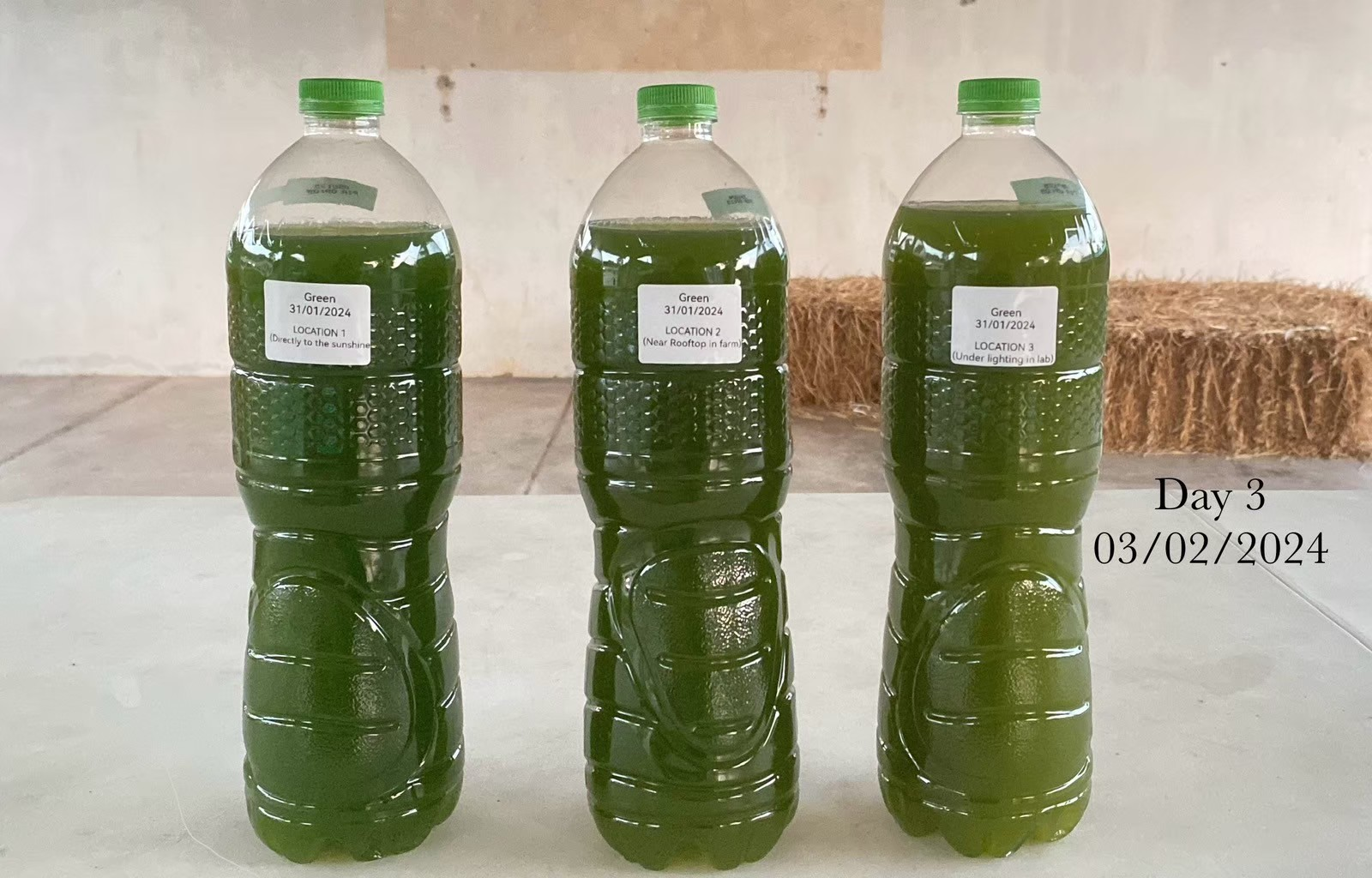 |
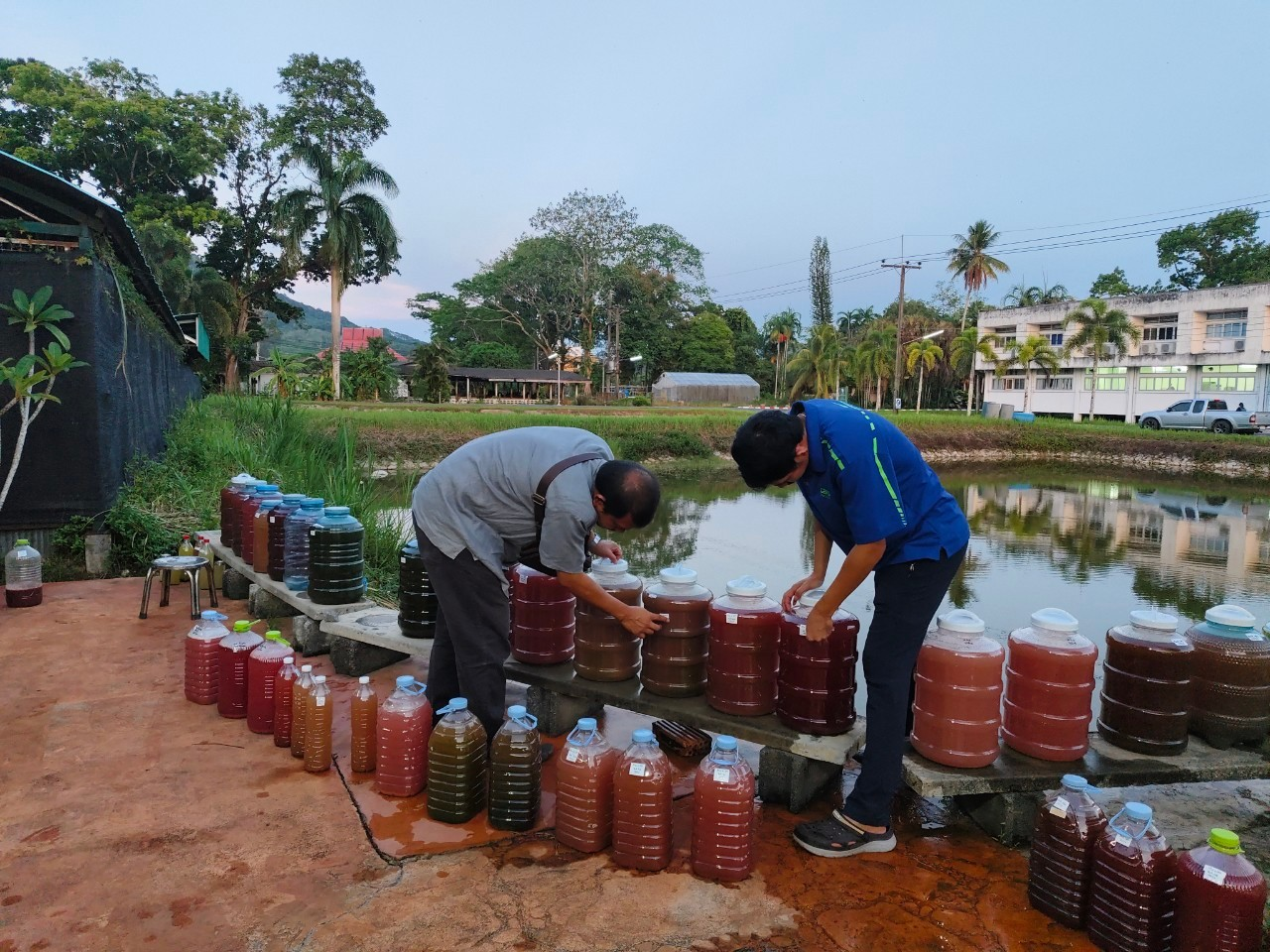 |
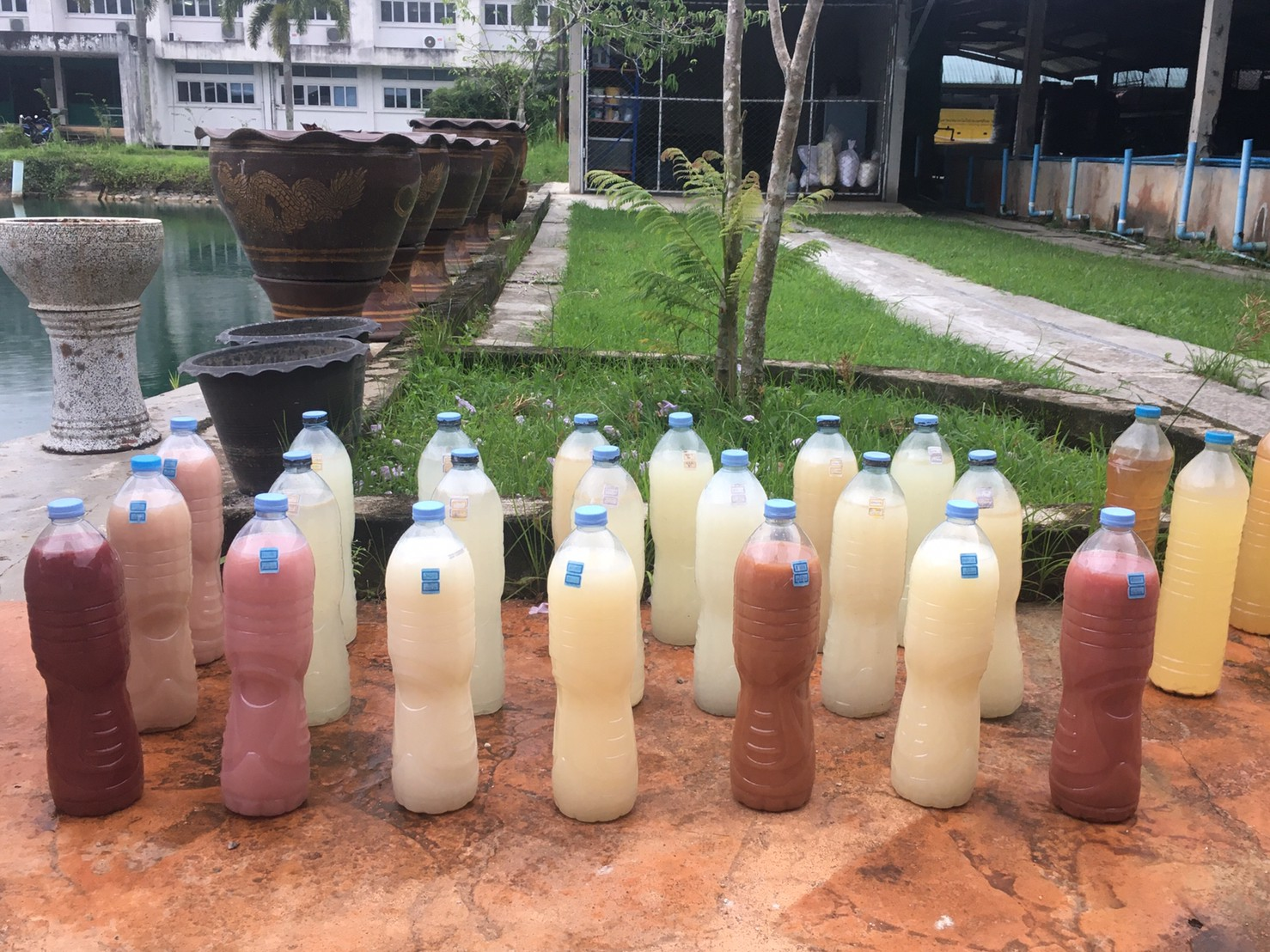 |
https://agr.rmutsv.ac.th/ruts/sdgs/waste _landfill

